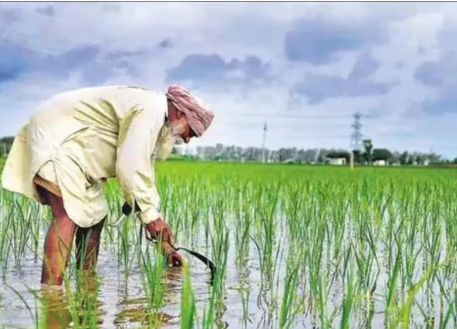Haryana’s Chief Minister, Shri Manohar Lal, and his administration are actively supporting the farmers, the pivotal backbone of the nation. They are making substantial efforts to strengthen this vital support network.Aligning with farmers from seed to market, efforts are underway to ensure fair prices, starting from the cultivation of crops. This initiative minimizes the hassles faced by farmers during the extended days of selling their produce at markets. Haryana tops the chart as the first state in the country to procure 14 crops through MSP (Minimum Support Price).
Similarly, in sugarcane farming, the government has raised the bar, increasing the price per quintal from Rs. 372 to Rs. 386, the highest in the country. The government has also announced a price of Rs. 400 per quintal for the upcoming year, not just aiming to boost sugarcane cultivation but also to strengthen the financial status of farmers.
Besides, the government has extended unprecedented benefits to farmers through various schemes. Under the “Meri Fasal Mera Byora” portal, a whopping sum of Rs. 85,000 crore has been credited to the accounts of 12 lakh farmers over the past seven seasons. The state government has also lauded the Prime Minister’s Crop Insurance Scheme, benefiting 29.45 lakh farmers with insurance claims amounting to Rs. 7656 crore. This insurance cover has shielded farmers from potential losses due to crop failure.
To ensure ease of selling produce, the government is constructing an international standard horticulture market in Gannaur and Sonipat at a cost of Rs. 7,000 crore. Post its establishment, farmers won’t need to travel to Delhi to sell their produce. Additionally, the government is investing Rs. 150 crore in constructing apple, fruit, and vegetable markets in Panchkula, aiding the development of new and additional markets with an expenditure of Rs. 1074 crore.
Supporting farmers in cultivating alternative crops to conserve water, the government has offered a subsidy of Rs. 118 crore to those transitioning from paddy farming to other alternatives. This redirection from rice to alternative crops covers 1,74,464 acres. Besides, the government has allocated Rs. 836 crore to the accounts of farmers producing bajra under the Bhavantar Bharpai Yojana.Shifting focus to natural farming, the government is aiding 11,043 registered farmers by establishing natural farming training centers in various locations. This move is steering farmers toward natural farming practices.
In the direction of environmental conservation, the government has provided canteen facilities at 25 mandis through the Atal Kisan Majdoor Canteen Yojana, offering meals at Rs. 10 per plate. The integration of 108 mandis with the National Agriculture Market (e-NAM) benefits farmers greatly.Moreover, the government is granting Rs. 1000 per acre for stubble management to deter farmers from burning crop residue, mitigating air pollution and health hazards. Consequently, this year saw a reduction in stubble burning, bringing economic benefits to farmers as well.

















